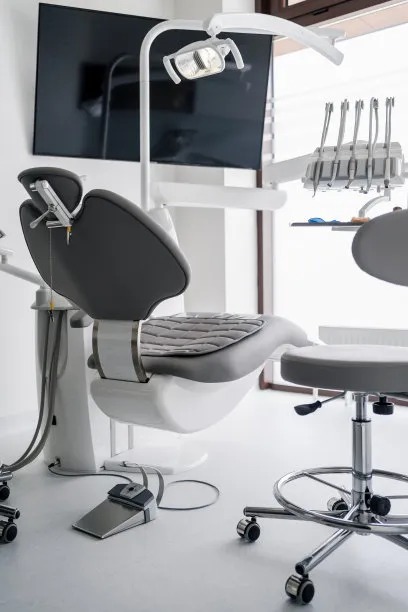Summary: After receiving a dental filling, its important to adhere to certain guidelines to ensure the longevity of the treatment and maintain optimal oral health. This article highlights essential post-filling practices including pain management techniques, dietary considerations, oral hygiene routines, and follow-up care. Each aspect is critical in safeguarding the filling and preventing further dental issues. By following these recommendations, patients can enjoy a healthier mouth and the benefits of their dental work for years to come.
1. Effective Pain Management Techniques

Following a dental filling, patients may experience some degree of discomfort or sensitivity. It鈥檚 crucial to manage this pain effectively to ensure a smooth recovery. Over-the-counter pain relievers, such as ibuprofen or acetaminophen, can be effective in alleviating mild to moderate discomfort.
Moreover, applying a cold compress to the outer jaw can help reduce swelling and numb the area, further providing relief. Just be cautious not to apply ice directly to the skin to prevent frostbite.
If the pain persists beyond a few days or intensifies, it is important to consult your dentist for further evaluation. They may provide additional treatments or medications to address the issue.
2. Smart Dietary Choices Post-Filling
What you eat after getting a dental filling plays a significant role in the sustainability of the treatment. It is advisable to avoid very hot or cold foods for at least 24 hours to reduce sensitivity. Consuming soft foods like yogurt, mashed potatoes, or smoothies can help minimize discomfort while ensuring you still receive necessary nutrition.
Additionally, steering clear of sticky or hard candies can prevent unnecessary pressure or tension on the newly filled tooth. Foods rich in calcium and phosphates, like cheese and leafy greens, help strengthen tooth enamel and contribute to overall oral health.
Hydration is also vital, so drinking plenty of water can flush out bacteria and support healing. Avoid sugary drinks that can lead to further decay or complications with the filling.
3. Essential Oral Hygiene Practices
Maintaining oral hygiene after a dental filling is essential for preventing further decay and maximizing the lifespan of the filling. Soft-bristled toothbrushes are recommended to avoid irritating the gums around the filling site. Brushing twice daily and flossing at least once helps remove plaque and food particles that could lead to an infection.
Be gentle around the filled tooth to avoid damaging the filling material. Additionally, consider rinsing with an antiseptic mouthwash to keep your mouth fresh and ward off any potential bacterial growth around the area.
It鈥檚 best to consult your dentist for personalized recommendations on oral care products post-filling, as they may suggest specific options tailored to your dental health needs.
4. Importance of Follow-Up Care
Follow-up appointments with your dentist are indispensable in monitoring the condition of the filling and your overall oral health. During these visits, your dentist will check for any signs of wear, damage or decay surrounding the filling.
Regular check-ups allow for early intervention if a problem arises, which can save you from more extensive and costly dental work in the future. It鈥檚 advisable to keep track of any symptoms like prolonged sensitivity or pain, and communicate those to your dentist during your appointments.
Lastly, maintaining a schedule for routine cleanings every six months will ensure any potential issues are caught early, further extending the longevity of your dental fillings.
In summary, adhering to these essential guidelines after receiving a dental filling is vital for ensuring lasting results and maintaining optimal oral health. By effectively managing pain, making mindful dietary choices, practicing diligent oral hygiene, and prioritizing follow-up care, patients can enjoy the benefits of their dental fillings for years. Taking these proactive steps contributes not only to the success of dental treatments but also promotes overall well-being.
This article is compiled by Vickong Dental and the content is for reference only.
Vickong Dental
Vickong Dental is a large medical group established in Hong Kong in 2008 by professors from well-known medical universities in Guangdong and Hong Kong, as well as medical doctors from key national '985' universities (including Master's supervisors and senior professors). The chain of branches brings together expert dentists with PhDs and Master's degrees from Hong Kong and Mainland China, committed to providing high-quality dental treatment.
"Vickong Dental Practices the University Motto of 'Healing and Serving Society,' with a Stable Operation for Sixteen Years. It Has Been honored with Hong Kong Enterprise Leaders's Choice,' and is a Global Trusted Implant Center for the Nobel Implant System. Recommended by Hong Kong Metro Broadcast and Guangdong Television, it Serves Customers from Over Thirty Countries and Regions, Gaining the Trust and Favor of Citizens from the Guangdong-Hong Kong-Macau Greater Bay Area and Surrounding Cities.

Thousands of customers' unanimous praise
The most recognized and highly recommended dental service by customers in the Guangdong-Hong Kong-Macau Greater Bay Area
We Ensure You Receive Detailed Care and Attention Here
Hong Kong standards, Shenzhen prices, Your Trusted English-speaking dentists

Vickong Dental Medical-Grade Instrument Disinfection Process
Vickong Dental Medical-Grade Instrument Disinfection Process

Vickong Dental Chain: A Warm and Comfortable Environment for Treatment






Appointment Hours

Q&A
Why choose Vickong Dental?
Vickong Dental practices the university motto 「Medicine to Benefit Society」, with each branch bringing together highly qualified dentists with doctoral and master’s degrees from Hong Kong and the Mainland, and has maintained seventeen years of steady operation。Recipient of 「2024 Hong Kong Enterprise Leaders Brand」, 「2025 Hong Kong Enterprise Leaders Brand」, a Nobel Biocare Global Trusted Implant Center, and a brand recommended by Metro Radio Hong Kong and Guangdong TV。
To date, we have served customers from more than thirty countries and regions,earning exceptionally high word-of-mouth recognition and trusted recommendations from residents across the Guangdong-Hong Kong-Macao Greater Bay Area and surrounding cities
We have eight major branches in Zhuhai、Shenzhen,and a consultation and service assurance center in Hong Kong,so you can book a free consultation at any time for any questions,which is very reassuring.
If I do not accept the quotation after the CT scan, will I be charged??
No! As long as the actual treatment has not started, you will not be charged any fees.
Will there be any additional charges during the treatment process?
No, there won’t be any additional charges. Before treatment begins, we will clearly explain the treatment plan and its corresponding fees. Only after the patient agrees and signs the consent form will we proceed with the dental service.
Can I pay in Hong Kong dollars?
Yes. Vickong Dental accepts payment in Hong Kong dollars. The amount will be converted based on the exchange rate of the day, and the applicable rate will be clearly communicated to you in advance.
Can I reschedule my appointment at any time?
Yes. Please contact us via **WeChat** or **WhatsApp** as early as possible, providing your original appointment time and details, along with your preferred new date and time slot for rescheduling.













